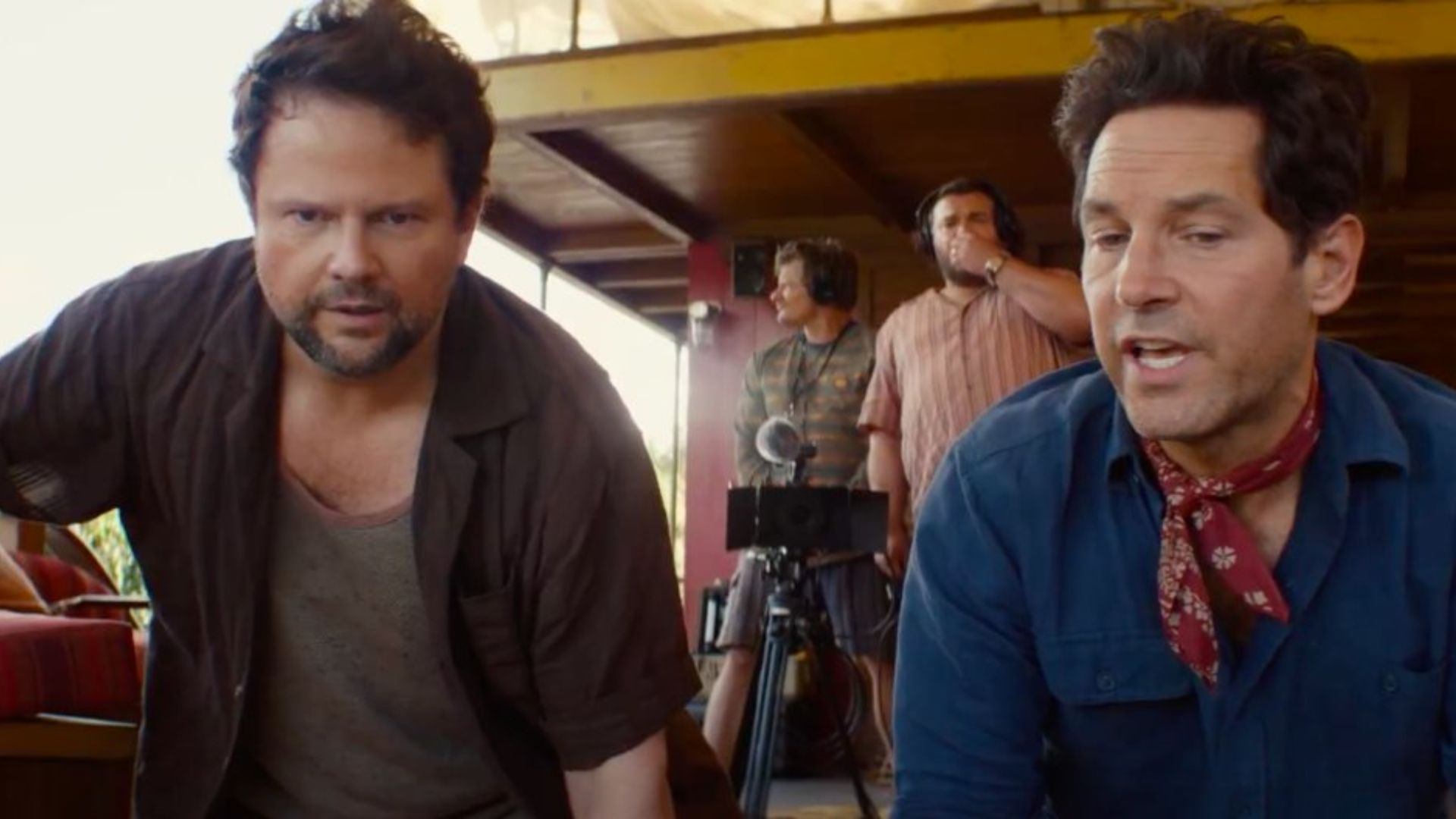Street vendors, guards, cleaners, street cleaners, promoters and even a sign language translator ensure the audience’s enjoyment
Summary
The train that takes you to and from Lollapalooza, on the 9 Esmeralda line, in Sao Paulo, is the stage for the event operators. They use the tracks to get there and back, while officers and cleaners work on the platforms. Outside the Autódromo station there is more work: street cleaners, street vendors, inspectors and guards work until dawn.
It’s 9:30 and the sisters Carla and Camilla Leite Alves arrive at the Osasco train station out of breath. They come from Brazil, north of Sao Paulo. They took two buses, two subways and now confirm that the 9 Esmeralda line goes to the Autódromo station, the closest to Lollapalooza.
In the carriage, which is not crowded, they can sit. They will work late into the night at the kiosks. They are used to and appreciate the service, which they have been carrying out for about two years. They were at different festivals.
In the sixteen stations up until the disembarkation, there is little indication that Lollapalooza is taking place. Most of the passengers are workers coming and going on a rainy Friday. The sisters talk about the program.
“Guys, what is Supla doing here?” After work, or during it, if the place where they are staying allows it, they want to see Luiza Sonza, Maneva, Kevin, Chris and Xamã.
Raincoat for ten reais
A salesman enters the carriage. “If you go to Lolla, this is your best friend.” Shows the raincoat, ten reais. At the fair, how much will it cost? “There are thirty of them, brother,” replies the bat, who prefers not to say his name or be photographed.
Sisters Carla and Camila arrive at the Estação Autódromo and meet their friend Andressa Vieira. The three will work together. It’s 11. In the afternoon the workers will take up positions inside the fair, on the train platform and on the street. Heavy rain gets in the way, not even a raincoat can solve the problem.

But chaos can also occur late at night, between 10pm and 1am, at the Autódromo station, when fans want to go home by train. Then whoever really closes the first night of Lollapalooza shows comes into action.
With the megaphone, the tireless agent repeats the instructions
The crowd takes over the street, the entrance, the stairs and the platform of the Autódromo station. Tireless agents, men and women, repeat into the megaphone: “Santo Amaro, Pinheiros, Osasco. Best boarding at the end of the platform. Don’t stop on the stairs, don’t stop on the stairs.”
Each officer says the phrase about 20 times a minute into a megaphone. In three hours of work they will repeat the guide at least three thousand times. This only happens on show days at Interlagos. The station does not close.
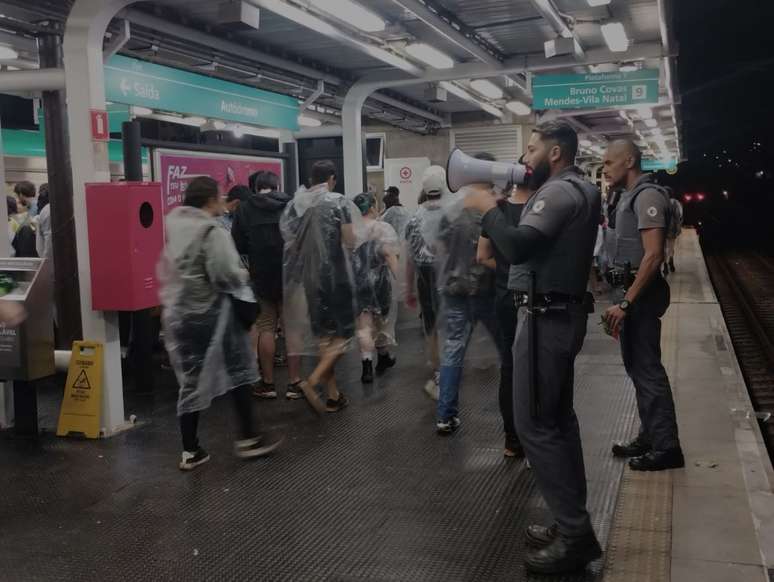
The trains arrive and depart quickly, pulling eight cars. Inside there are more than two thousand people. Crazy people fall on the platform and the only reason they don’t crash onto the tracks is because they hit their heads on the train which, luckily, is stopped.
Libra interpreter Gustavo Araújo Ferreira, calm and happy, asks the station agent for the itinerary for his return home. He likes working on shows, “I think it’s a good time.” His working day was peaceful, he didn’t need to accompany deaf people, which is unlikely in a musical show.
He will earn almost a thousand reais in the three days of Lollapalooza. “It’s worth it, I want to do more,” she says before running away, not knowing if she will be able to get home by public transport. It’s past midnight and she lives in Guarulhos.
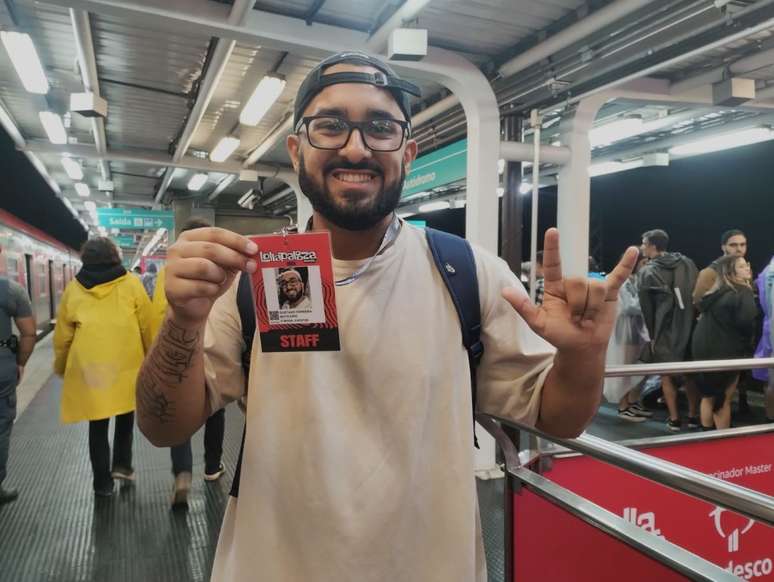
Early morning with no news for the station cleaners
Working in the early hours of the morning is nothing new for the cleaners at the Autódromo station. They arrive at 10pm and leave at 6am, regardless of the uninterrupted movement of trains.
One of these warriors is Edilene Ribeiro, 38 years old. She doesn’t think service has increased much with Lollapalooza. “There were more people at The Town.” After work she attends a nursing course in the morning and can only sleep in the afternoon.
At the station turnstiles the agents repeat thousands of times instructions such as “this line is for those who go to buy tickets; If you have a ticket you can go straight.” Outside, street cleaners, police officers, hammer workers, the civil guard, military police officers and small traders are still working intensely.
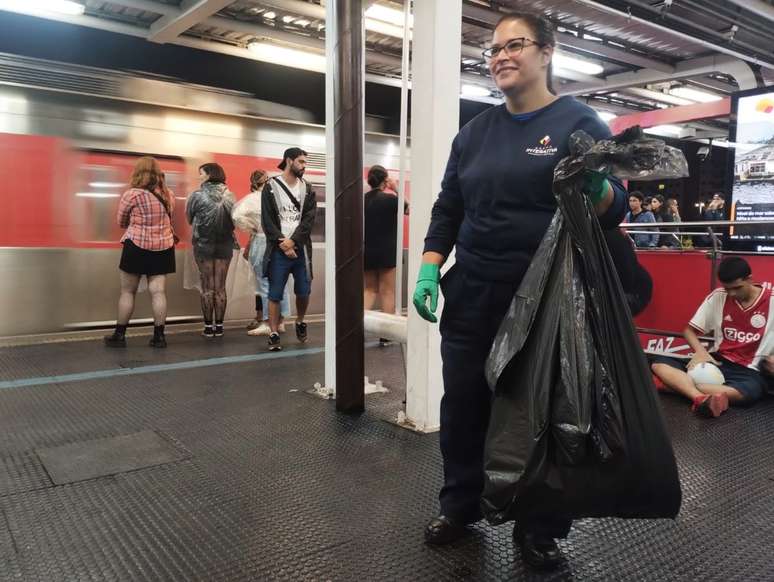
Inspectors feel remorse when they take goods
In front of the station four young municipal inspectors have finished their work. They keep an eye on the street vendors. Once identified, they call the Guardia Civil, who confiscate the goods.
The checks began in the late afternoon. In the early hours of the morning they wait for the van that will take them home, outside Sao Paulo. They didn’t learn much. “But, brother, there are people who ask to run: they stop in front of us and start selling,” says one of them.
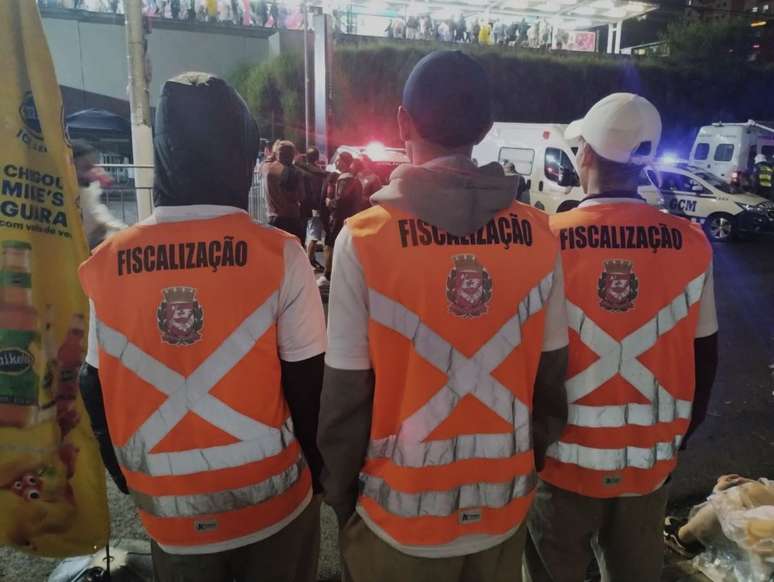
Another responds, before the reporter asks: “Do you feel remorse? Brother, I’m sorry. But the person can recover the goods later. There are people who curse and offend, but others understand that if their job is to sell, ours is to monitor.”
At that moment, João Vitor, 24 years old, from Carapicuíba, arrives at the door of the Autódromo station. It’s past midnight, but he didn’t arrive at this hour to escape inspection.
He discovered Lallapalooza in the afternoon, selling water, lollipops and chewing gum on the train. He came to try his luck. He didn’t sell much, but I plan to return first on the other days of the festival.
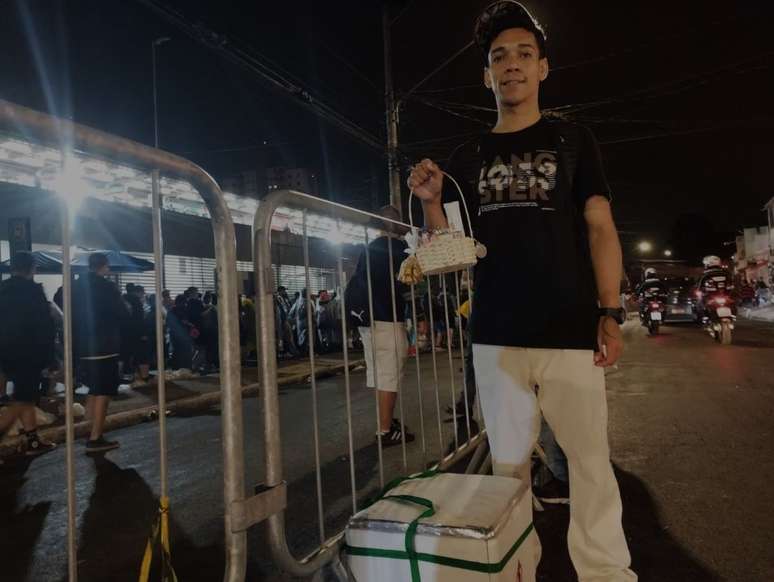
Last workers of the morning
Garis sweeps quickly, monstrous footprint, looks like they just woke up. It’s after one in the morning and there’s no more rubbish on the street. Even so, the shift will last another two hours. Movement has greatly diminished.
Dona Regina Gomes dos Santos, 71 years old, retired, is closing the snack bar she opened in her garage, in front of the station. Born in Salvador, she is one of the founders of the neighborhood.
Cantinho da Regina Lanchonete e Bomboniere has existed for ten years. “It doesn’t pay much, I pay to work, but at the shows it gives me energy. You have to take advantage of the opportunity. For me, I had one event a month.
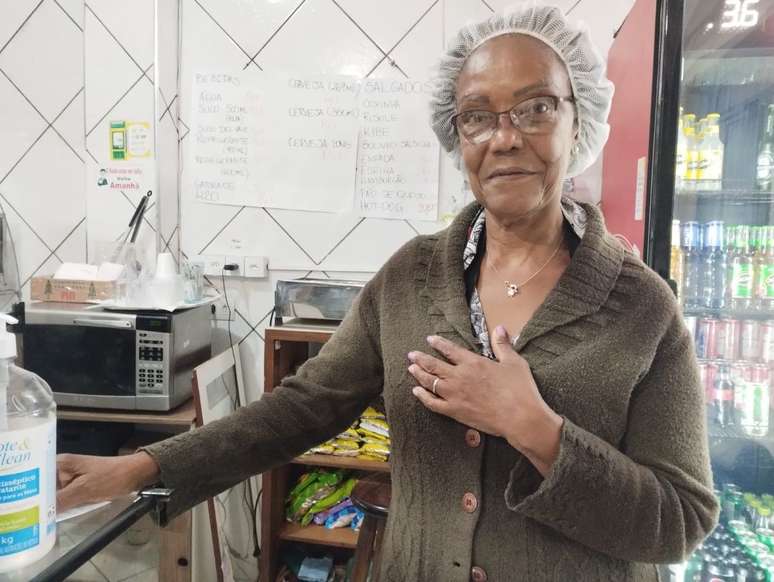
He intends to work “as long as Jesus takes me.” At this moment, coincidentally, the sisters Carla and Camilla, whom we met at the beginning of the service, arrive at the station.
The coincidence is so great that the journalist records the moment. Before the photo, with a gesture of busy workers, they remove their badges from their blouses, so that they can be identified in the photo.
Source: Terra
Rose James is a Gossipify movie and series reviewer known for her in-depth analysis and unique perspective on the latest releases. With a background in film studies, she provides engaging and informative reviews, and keeps readers up to date with industry trends and emerging talents.





